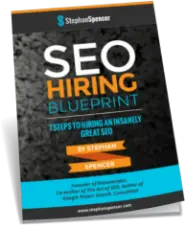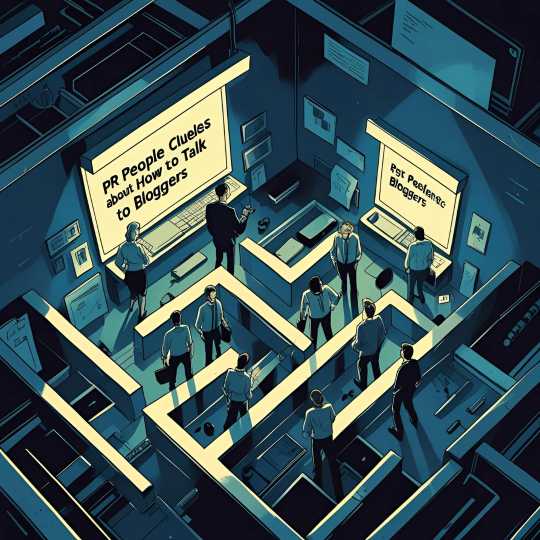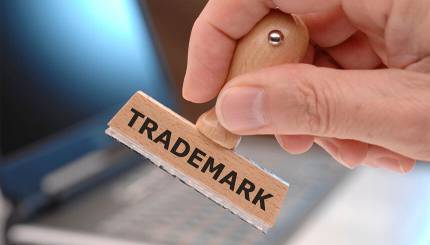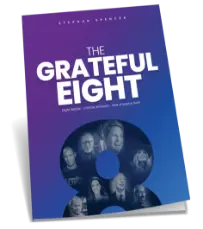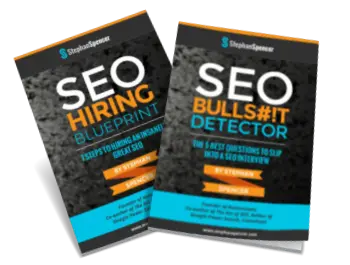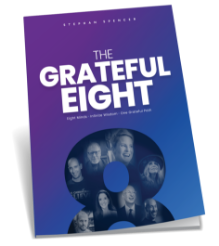Most business owners know that raising their profile in the media has potentially massive benefits. Becoming a household name is lucrative, if you can manage it.
Unfortunately, hiring an agency is notoriously expensive, and navigating the media world can be complicated and intimidating for the inexperienced.
Publicity doesn’t have to be difficult. It’s something that you can do in-house if you have the will.
Like most things in business and in life, successfully gaining publicity is about building relationships, understanding some basic human psychology, and offering plenty of value.
Over the years, I’ve interviewed some of the best publicists and PR experts in the business on my podcast, Marketing Speak. I’ve personally used many techniques that they’ve recommended and I’d suggest you do the same!
Here are a few to get you started.
Begin With a Strong Foundation
Before you begin chasing publicity for your business, it’s important to ensure you have a strong foundation. Getting your story in the media is a bit like getting into a private club: the bouncer’s not going to let you in if you don’t have ID or meet the dress code.
When you contact a journalist or producer with a story idea, the first thing they do is Google you. If your website and social media pages look unprofessional or out of date, they’ll quickly pass.
According to publicity expert Selena Soo, “When the media is googling you, looking to learn about you and nothing comes up about you online, they’re going to wonder, “Is this the real deal?” If you have a strong online presence with clear messaging about who you are, perhaps you already have some blog posts on your website, they’re going to see you as a much more serious expert.”
Full interview: Cracking the Publicity Code with Selena Soo.
Always Have a Hook
For the uninitiated, it can difficult to guess what journalists find newsworthy or not newsworthy. The trick to understanding newsworthiness is that journalists are always looking for the hook.
The hook is what gets the reader’s attention and draws them in. It could be an emotional hook, e.g. a dog that helps a child recover from a disease; or a timely hook, like connecting a story to a particular date or trending topic; or it could fit into a popular narrative that people identify with, like “David vs. Goliath”.
Ex-news anchor and media trainer Christine Haas says, “Finding news hooks to get your name out there is the way to go. You can’t just call a reporter and say, ‘Hey, I’ve got a great business, it’s growing, I’d love for you to come do a story,’ and they’d say, ‘You need to contact our sales department because that’s an advertisement.’ You have to feed reporters the information that they need and give them all of the elements.”
Full interview: PR Strategies to Get Your Brand On Air and Raise Your Visibility.
Forget About Email Blasts and Press Releases
When most people think about publicity or PR, they think about crafting a press release or an email blast and sending it out to journalists (or having an agency do it for them). Not only is this time consuming (and probably expensive) but you’re just going to get lost in the noise of the journalist’s inbox.
Josh Elledge of Up My Influence Media advises that it’s much better to work on building your authority and developing relationships. “Invariably, [business owners say to me], “Well, I was just gonna blast out an email to ten journalists. I was gonna pay for a press release.” And I’m gonna tell you that those are probably the two worst things you could possibly do to grow your business. Instead, number one…is work that is going to increase your authority in your space.”
Full interview: Gain Massive Exposure for Your Brand Through Authentic PR.
Use the Phone
Journalists and media professionals get hundreds of emails per day. Sure, if they happen to come across something amazing in their inbox, they’ll jump on it. But it’s a difficult task to craft that pitch that really stands out.
According to entrepreneur, speaker, and author of Free PR Cameron Herold, using the phone is a powerful way to cut through the noise and get direct access to journalists.
“We pick up the phone and we phone the journalist,” says Cameron. “We say, ‘Do you have two minutes? I think I have a good story for you.’ They virtually always say one of two things either, ‘Yes,’ and then we pitch them and ask some questions or they say, ‘No, I’m busy.’ We say, ‘Can I call you tomorrow or Thursday?’ The reason that we actually manage our PR efforts under a sales team is because they’re more like salespeople. Their product is a story.”
Full interview: Capitalizing on Free PR.
Offer Real Value
When you approach a media outlet, you can often be focused on what you want. Heidi Krupp-Lisiten of Krupp Kommunications says that a crucial mistake many people make is not offering real value to the journalist or producer you are talking to.
Heidi: “I think that you gotta create win-win relationships for people, you can’t just be like, ‘Make me famous.’ It could be, ‘Make me famous and I’m gonna add value to your show so that both of us win.’ I think sometimes people miss that part and I think that’s the critical, most important piece.”
Full interview: Using Publicity to Appear Larger Than Life.
Build Credibility
If a journalist is doing a story on cyber security and they have to choose between some random IT business owner and a person who has written a book about computer hackers, who do you think they will choose?
The person with the book—every time. Why? Because they have credibility.
If you’re looking to develop a respected public profile over the long term, then investing in credibility-building exercises like writing a book or starting a podcast is well worth your time and energy.
According to Rob Kosberg of Best Seller Publishing: “First and foremost, the producers of these shows, they need content. You already have a step up because they need you. They’re like you and me, they don’t want to put an idiot on their show. They don’t want to made a fool of. They’re constantly getting bombarded by people that want to be on the Today Show or Good Morning America, or Good Morning San Diego, or whatever. They have a criteria.”
Full interview: Growing Your Business Through a Bestselling Book.
Be Proactive and Sell Yourself
There’s a persistent myth that if you do something interesting or remarkable, the media will seek you out. This is not true at all. Journalists and producers are constantly looking for stories, but they’re also time-poor. The more you can package up your story and make their job easier, the more likely you will be successful. Again, it also helps to be an expert or noteworthy person.
According to author, speaker, and entrepreneur Adam Witty, “When it comes to PR and media, the big thing is most people don’t really work at it. They hope and pray that the media will beat down a path to their door and find them, but the truth is to get media, you got to sell yourself to them and demonstrate that you know what you’re talking about. The key to building authority is largely that old fashioned thing called elbow grease and hard work.”
Full Interview: The 7 Pillars of Authority Marketing.
Tune in to Marketing Speak for more excellent interviews and business advice.
